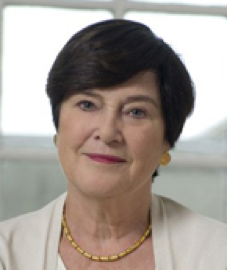 Arvid Kappas, Department of Psychology, Jacobs University Bremen
Arvid Kappas, Department of Psychology, Jacobs University Bremen
February 2017 – The way I understand Plato, he assumed the soul to be divisible into three different parts that modern psychologists might refer to with the modern terms cognition, emotion, and motivation (see Scherer, 2000). He assumed further that society could be understood as being composed of three classes – rulers, military and common folk – whose functions in the polis (the state) could be mapped to the three parts of the soul. At a first approximation and without getting into the complexities of Platonic scholarship, the rulers use or represent reason, the military use or represent emotions (e.g. the anger of fierce warriors), and the common folk use or represent primitive motivations.

So far so good. Fast forward to 2017 and one is arguably at a loss to find much reason in politics: the rulers, the military and the common folk seem to all have gone mad. While appeals to the voters’ fears and objects of rage have a certain tradition in political campaigning, we are at present confronted with politicians in several western countries that seem confused about when reason would be appropriate – to state it in the friendliest of ways. Voters even seem to be confused about whether grabbing someone, motivated by primitive urges, might indeed be great predictor of political prowess. What happened?
[Enter Brexit, Stage right]
As media reports on Brexit would have it, the winning Leave side used emotional appeals, whereas the losing Remain side tried to use reason (at least more so). Of course, as we all know, reason is infinitely more boring than emotions. And yet, I wonder whether the Brexit vote was truly an emotional one to the degree the media and common wisdom would have us believe. I think it is time to step back a little bit and analyze what part emotions might have really played here. As so often, much depends on how the term emotion is defined. As emotion seems to take center stage in politics in 2017, we should not remain quiet, given that the readers of this sourcebook are arguably the keepers of the expertise as regards emotions. To a degree the hype surrounding the current shift towards a post-factual world is a good chance to weigh in with some of the knowledge emotion scientists have accumulated over the past decades.

Conventional wisdom thus is that when people are highly emotional, they do not consider facts – hence, the post-factual world. But what emotions are we talking about here and did emotions necessarily trump reason [pun obviously intended] in these elections? As so often it is time to start defining concepts here. If emotion is some internal process in individuals that lasts between 500ms and 4s – as some (e.g., Paul Ekman) hold, then the election process would not be a function of emotions, unless the voter at the stage of making his mark on the ballot briefly recreates the state of the world in her mind, has an emotional response and … bingo – a spontaneous emotional choice results. Of course, this is not how this works.
Most people vote “in cold blood”. They have thought about their choice many times and the act of voting is not an outburst of emotion. Instead, the choice might appear irrational depending on the observer’s values. For example, consider Brexit. Someone might choose a course of action that would lead him/her to have less prosperity. How could they! They must be crazy! If indeed, maximization of prosperity were the only rational choice, then this would not make sense. However, if some perceived state of national independence was appraised as being more valuable or relevant, then voting for Brexit would indeed be a rational choice from that point of view. I would assume that in many cases the so-called emotional votes were in fact “rational” within the idiosyncratic belief system of the voter.

Yes, you might say, but – one could easily observe emotional voters on TV! Every day and all the time! Indeed, but these people were emotional whether they were supporting Leave or Remain, or, to change political scenery, Hillary Clinton or Donald Trump. Most political stump speeches are designed to elicit strong emotions, regardless of the specific view they aim to support. The mobilization of voters involves underscoring the importance of certain goals or beliefs, and ritualistic affirmation in meetings, such as political conventions, creates a sense of unity and cohesion in the relevant constituency.
This is hardly specific for any given political direction or set of belief systems. Instead, politicians of all couleurs would try to identify topics that to the voters are emotional and shared among many. It is obviously easier to get people to vote for you if your promises are aimed at inhibiting things that people would appraise as threats or facilitate those that people would appraise as beneficial. This could be immigration, out-groups, financial well-being, health, environment, military strife, etc.
By selecting topics of relevance and trying to amplify their emotional value, for example emphasizing the threat of X, those who orchestrate campaigns, or public opinion, attempt to shift the probability of voters leaning this way or that way. For example: Assume that 1000 refugees entered your country. This might be a fact and it is per se not particularly emotional at that. The emotional power comes from the associated beliefs – 1000 refugees means 1000 criminals + I feel threatened for myself and my loved ones by criminals. If we assume that this would sway voters to vote for those who say they will refuse all refugees, then the emotionality is not with the vote as such, but with the arguments that have created the appraisal that 1000 refugees are dangerous. A simple “no that is not true” does not defeat the fear. That should be obvious. Thus, it might be relevant to shift the discussion from the irrational and emotional voters to the attempts to charge events or actors with a high emotional value.
Thus, before acknowledging that emotions drive the vote, we should decompose the different elements that contribute to the seemingly alarming drift towards political extremes that can be observed at present – and here particularly in the context of alt-right, nationalistic, and anti-globalization forces.
Break
In the meanwhile, I broke my arm and this slowed me down sufficiently to stop my rambling at this point as I am not as fast in typing as I am in the best of times. Suffice it to say that we, as emotion scientists, should get involved in the discussion of how emotions and reason, values and the post-factual interact to create volatile and dangerous situations. We are used to emotion science being applied in clinical contexts. I have discussed a few times the importance of applied emotion science in the new world of smart machines – the field of affective computing. But today, more than ever, a discussion of politics could benefit from applied emotion research. ISRE, being a highly interdisciplinary and international forum, is the best possible place to start and maintain such discussions.
In different news
Perhaps our new online discussion forum would be a great place for such discussions. If you haven’t done so, just go to http://www.isre-forum.uni-kiel.de/, select a new username and password (your ISRE credentials are independent of this forum – it is safer that way), and dive in. Let’s see whether this is a useful tool to bundle discussions in the ISRE community. Until the conference, the Forum is open to everybody. Afterwards, the right to post will be restricted to ISRE members. Another benefit of ISRE membership.
Speaking about the conference: I hope to see all of you in St. Louis between July 26 and 29. The deadline for the submission of papers has passed and the scientific committee, headed by Jerry Parrott, is currently busy reviewing proposals. The homepage for the conference is http://isre2017.org/ and we will update it in the next couple of months with info on registration, travel etc. We will have pre-conference events on the 26 and the program will start with the reception in the afternoon of July 26.
Here are the three confirmed keynote speakers:
 |
 |
 |
|
Academy Professor and Henry Wiesenfeld Professor of Humanities; Johns Hopkins Drieger School of Arts & Sciences |
Jonathan Gratch
Research Professor of Computer Science and Psychology; Director for Virtual Human Research; USC Institute for Creative Technologies |
Robert L. Wilson Professor of Sociology; Trinity College of Arts and Sciences at Duke University |
References:
Scherer, K.R. (2000). Psychological models of emotion. In Joan C. Borod (Ed.), The Neuropsychology of Emotion (pp. 137–162). New York, N.Y.: Oxford University




